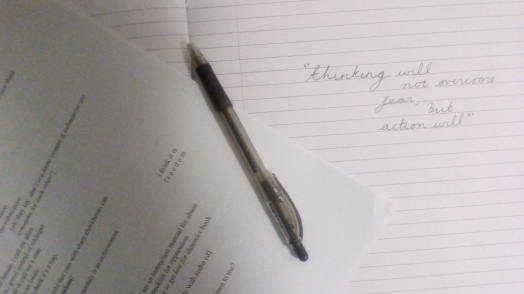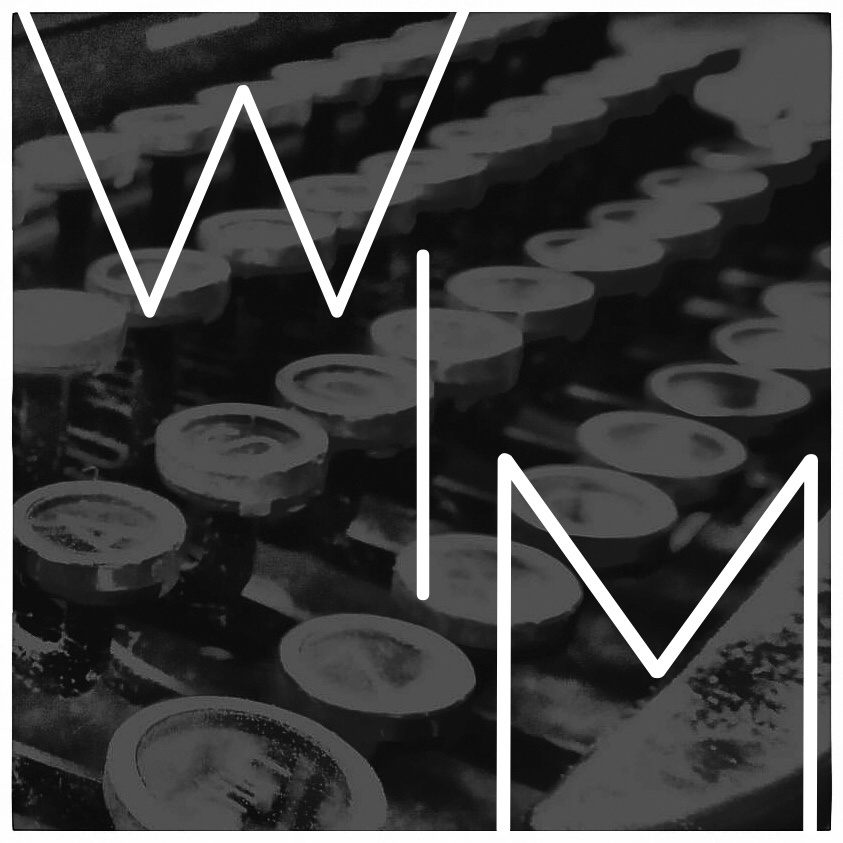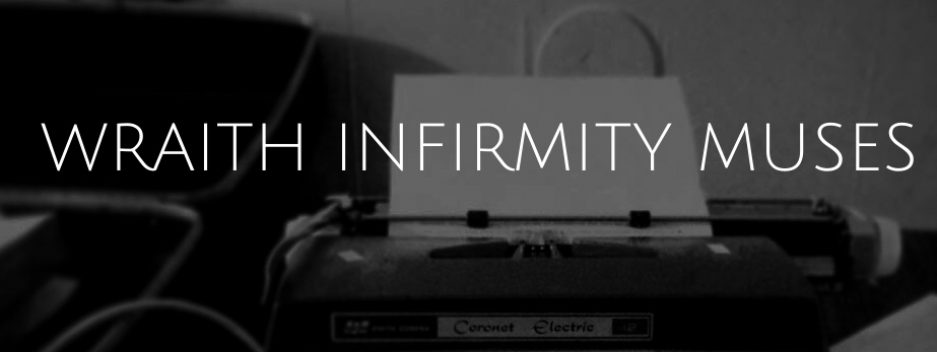Dying is Yucky and so is Writing About It: Creating an Authentic Voice in Pain Journaling
Pain journaling is an intimate process, even more so than regular journaling. It requires writers to divulge their vulnerabilities, particularly their physical ones, to the page. The writing itself is raw and filled to the very brim with suffering. Performance artist and writer, Bob Flanagan journaled every day for the last year of his life in this manner, detailing his battle with Cystic Fibrosis. According to Flanagan, “any normal person would’ve buckled from the pain, but Super Bob got twisted. Now, he’s into whips and chains” (Cystic Fibrosis Song). In order to deal with the pain from his illness, Flanagan got involved in sadomasochism. He later utilized his experiences with both Cystic Fibrosis and sadomasochism to produce numerous pieces of writing. They invaded his voice, making him appear crass through his use of vulgarities to describe what he went through with them. However, his crassness is a part of who he is. Therefore, by including it in his writings rather than sanitizing his work for publication, Flanagan’s voice is inherently authentic rather than superficially crafted.
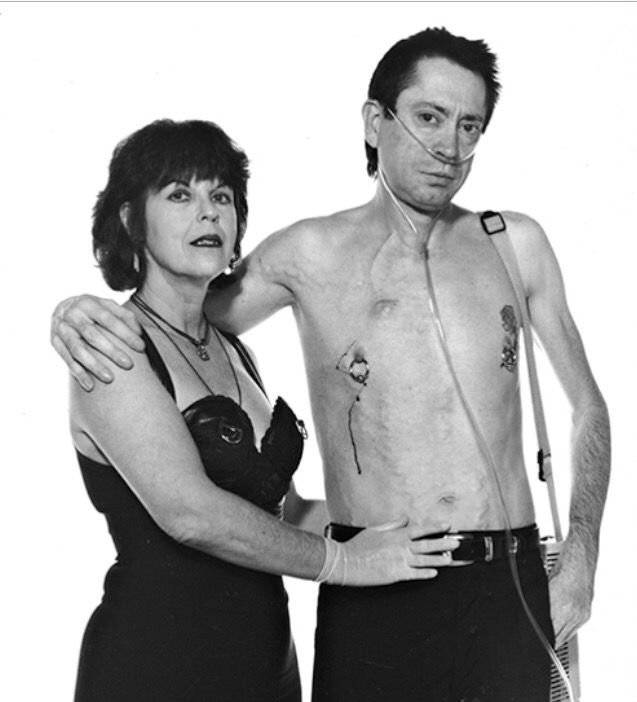
His voice is composed of a unique diction that relies on a mishmash of medical jargon and slang peppered with pieces of profanity. This use of language is unique when compared to other memoirs and journals that deal with similar subjects, as it does not sanitize the process of dying or of being in pain. For instance, compare Flanagan’s language in The Pain Journal(2000) with that of Audre Lorde in her book The Cancer Journals(1992). Lorde’s book focuses on her struggle with breast cancer, much like how Flanagan’s work focuses on his struggle with Cystic Fibrosis. Lorde’s book is not a journal like Flanagan’s, despite the title, but it does include passages from her diary.
In her one of her diary entries, Lorde writes, “Today is the day in the grim rainy morning and all I can do now is weep” (Lorde 35). In a very similar vein, Flanagan writes, “Still depressed now. I just want to die—I meant to write “cry” and I wrote “die” (Flanagan 11). The two are both talking about depression and frustration with their situations; however, they do so very differently. The language they use creates a different feeling for the reader. Lorde is more academic and reserved in her writing, while Flanagan, on the other hand, speaks plainly, using more everyday language.
Lorde’s aforementioned diary entry comes off as a constructed piece of writing, something that could be included in an essay or memoir. In comparison, Flanagan’s words are much less professionally constructed, more off the cuff. He writes for himself, while Lorde’s comes as off as being written for an audience.
This may be due to the fact that Flanagan’s journal was never written for public consumption. The diary entries included in Lorde’s book, on the other hand were chosen and shaped for publication. Flanagan’s began as a project that was meant to encourage him to write every day about his pain because he had been asked to submit something about his struggles with pain to an anthology. The project was a success in that it got him to write, so he decided to submit “an edited and cleaned up version” (154) of his journal entries to the anthology. However, that submission was in November and he kept writing until his death in December. The full journal, which was published post humorously by his wife, was never intended to be read as is. In his journaling, he was writing for himself, not for an audience.
This is evidenced by how words were left misspelled and grammar is, at times, nonexistent in the journal. Nothing was changed from Flanagan’s original writing for the sake of publishing. The publisher kept in all of Flanagan’s idiosyncrasies. For example, there is one page on which half of a journal entry is simply a series of slash marks typed by Flanagan’s “sleeping fingers” (163) when he fell asleep due to the side effects of one of his medications. The lack of editing allows readers to assume that the diction used in the journal is his personal diction, as everything was left just as he wrote it originally.
His diction can be divided up into two main parts: medical jargon and slang, which includes both profanities and sadomasochism terminology. The two parts work together to create Flanagan’s voice, as they are each representative of the two major aspects of his life: his Cystic Fibrosis and sadomasochism lifestyle.
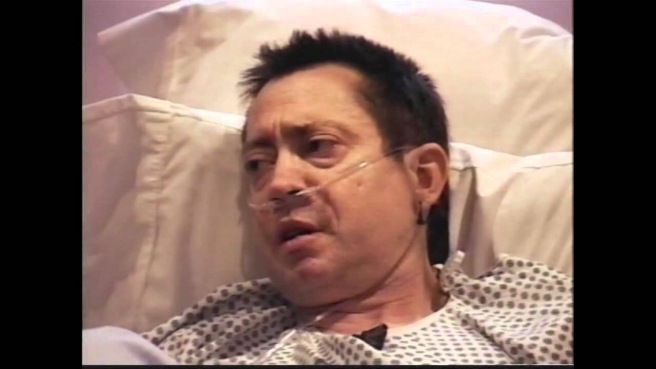
YouTube link to trailer
Flanagan floods his work with medical jargon. He includes reference after reference to the copious amount of medication he is taking. Rarely, however, does he include in his journal entries what these medications are for. Instead he simply lists their names: Welbutrin, Paxil, Zoloft, Demerol, Oxazipan, Dilaudid, Morphine, Vicodin, Clonopen, Damitall, Percocet, Halcyon, Cephtazidime, Prednisone. His first mention of one of these drugs comes on the second page of his journal, right as the reader is being introduced to the subject matter, style, and Flangan himself. He writes, “I increased my prednisone and that seemed to boost me a bit” (12). The boosting is the only mention he makes of what the drug does. He writes as if he expects the reader to know what he means or as if he is not writing to a reader at all.
Later in the text, when he is in the hospital, Flanagan incorporates more medical jargon in his reporting on his hospital stay, “I’m declining: FVC: 1.10, FEV1: 0.48. And in the blood gas department the PO2 down (88), and worse of all, the PC02 is up: 69, and it keeps going up” (129). He once again does not explain what these numbers mean or what the corresponding acronyms mean. Instead, he simply relies on his own knowledge. By refusing to explain his jargon, he is speaking as himself to himself. He does not attempt to create a voice, instead relying on the one he uses in everyday life.
His authentic voice shines through, in addition, in his use of slang. Almost all of the entries include profanity, while at least half contain some kind of slang referring to his sexual lifestyle. Often, the two intertwine. For example, one of his journal entries opens with the sentences, “Home. Buttplug up my ass” (17). He mixes his sadomasochism slang, “buttplug,” with a curse word, “ass.” He blends these two kinds of colloquialisms together throughout his work, consistently.
Often times, profanity is used for a particular impact, to demonstrate some kind of strong emotion such as anger or extreme sadness. Flanagan uses them, however, when discussing everyday happenings. He even uses it to discuss watching television, “lots of tv. Fucking OJ trial” (26). Yet, everything that Flanagan does is done through a film of pain. Not a day goes by in his entries that he does not mention being in pain. As such, his writing is constantly filled with extreme anger and depression at his Cystic Fibrosis. His use of profanity and vulgarities are the release of these feelings, rather than something included simply for shock value.
Flangan’s use of jargon and profanity is unique in that he is able to combine the two in an unusual way. Medical jargon carries with it the connotation of sterility. It lacks emotions. In comparison, profanity is oversaturated in emotion. By utilizing these two opposing things, Flanagan is authentically able to represent his voice and experiences in his journal. He writes as he speaks, rather than superficially creating a separate voice with which to tell his experiences.
Works Cited
“Cystic Fibrosis Song.” YouTube, uploaded by LeMortJoyeuxX, 26 Sept. 2011, https://www.youtube.com/watch?v=wZ8vm3KOB7o.
Flanagan, Bob. The Pain Journal. Los Angeles, Ca, Semiotext(e)/Smart Art Press, 2000.
Lorde, Audre. The Cancer Journals. San Francisco, Aunt Lute Books, 1992.
Emily Ramser is the Poetry editor for Weasel Press. She recently published a chapbook titled “UHaul: A Collection of Lesbian Love Poems,” which is available on Amazon. When not writing, she spends her time playing with her cat, Neville Longbottom, and working for a geeky marketing company.
______________________________
Beep
I’m not here. I am not really here. I am reclining on a deck chair, on an island, in the Caribbean. Soft breezes rustle, ever so gently, through the palm trees. The rhythmic ebb and flow of the ocean whispers to me. “Relax. Relax.”
“Another pina colada Senora?” Roberto, my shirtless cabana boy asks, as he walks toward me from the line of trees, leaving perfect footprints in the sand.
I lift my sunglasses and smile at him. “I don’t think so Roberto, but thank you.”
“You are welcome. Is there anything else I can do for you?”

“Well, if you don’t mind, I need some sunscreen on my back.”
“But of course. It would be my pleasure.”
I gave him my bottle of sunscreen and sit sideways in the chair, facing away from him. He kneels behind me with his knees in the sand. He pours the sunscreen into his hands, rubs them together, and begins massaging my neck and shoulders. His hands are warm and very strong. They move slowly toward the center of my back and down toward the base of my spine.
“Not quite so hard please, Roberto.”
He doesn’t say anything and he doesn’t ease up either. In fact, he presses even harder and then harder still. His hands move up and down my spine, thumbs pushing against each vertebrae, first on the left side and then the right. Push, push, push.
“You’re hurting me. Please stop.” No response.
Like some kind of maniac, he begins pounding on my spine with both fists. I try to rise from my TSG T|chair, but I can’t move.
My eyes fly open. Damn! I am here. Here is a hospital room. I’m flat on my back, corseted tightly from my neck to my hips by a back brace. I can’t sit up. I can’t turn over. And I hurt like hell. I push the pain pump button. Nothing. I push it again. Nothing. BEEP. BEEP. BEEP. Yeah, it’s empty. No kidding. I take a few deep breaths and push the call button for the nurse.
“How can we help you?” says a disembodied voice from somewhere behind my head.
“I’m sorry to bother you but my pain pump needs to be refilled please.”
“I’ll let your nurse know.”
“Thank you.”
A week ago I spent 11 hours on an operating table having metal rods inserted vertically and horizontally into my spine from top to bottom. My spinal x-ray looks like a railroad track with a head on it. My actual spine feels like a crew of burly men are driving spikes into it with spike hammers.
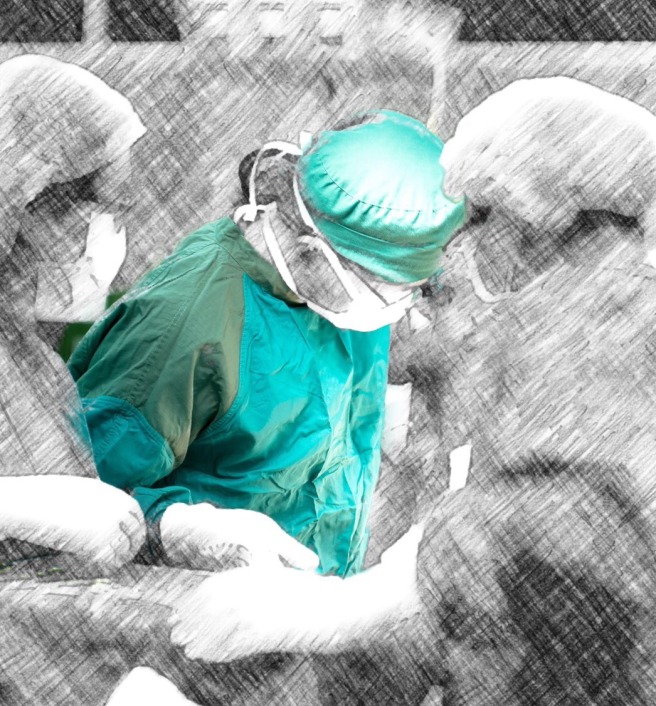
“Don’t think about it. Try to think about something else,” my friends and family suggest. Right. Good ole’ Roberto was really helpful.
“Meditation can be very effective,” nurse ‘Ratchett’ told me yesterday. A mountaintop full of Tibetan monks couldn’t meditate this pain away. BEEP. BEEP. BEEP.
There are 16 ceiling tiles running lengthwise and 12 and a half going the other direction. That equals… a lot of tiles. The tile directly above my head has a water (I hope it’s water) stain in the right hand corner.
In my dentist office there are inspirational posters, on the ceiling, directly above the dental chair. Pithy sayings like “never lose sight of your dreams,” and “we can do anything we want to do if we stick to it long enough,” are written over pictures of flowers and butterflies. BEEP. BEEP. BEEP. And it smells good too. Like lavender potpourri with a touch of minty freshness.
Not here. Pain makes me sweat. This room smells like Lysol and sweat. My hair is plastered to my head and the sheet below me is damp. The sound of the TV gives me a headache so I listen to the sink’s slow drip. They called the maintenance guy three days ago and he still hasn’t shown up.
I think it’s been about three days since the mystery voice said I’d get some pain medicine. Tiny monsters are chewing on my back muscles, with razor sharp teeth, intent on hitting the mother lode, my rich and tasty bone marrow. BEEP. BEEP. BEEP.
I’m no novice when it comes to pain. Kidney stones? Bad. C- section? Really bad. Two broken legs? Really, really bad. But this? This is insane. I push the call button again.
“How can we help you?”
“I called a while ago. My pain pump is still empty. I really need some pain medicine.”
“Yes ma’am, we can see your pump on our monitor. I’ll have someone there soon.”
“I would appreciate it.”
I’m a southern girl. We’re raised to be polite and nice. We say ‘could you please…,’ ‘thank you so much,’ and ‘bless your heart,’ but my southern sensibilities are being sorely tested because this bed is a bar- b-que pit and I’m the meat. BEEP. BEEP. BEEP.
They don’t put clocks in these rooms for a reason. It keeps us off balance. They think we won’t know it will be forever o’clock before anyone bothers to check on us. I bet there’s a clock in the ‘special’ room on the seventh floor. That’s where the ‘celebrity’ patients stay. I got a look at it one day while visiting a friend. It’s a luxury hotel suite. It’s huge, with fancy wallpaper and soft, upholstered furniture, and an extra bed for a guest. There’s a clock in there because if Troy Aikman or Madonna wants pain medicine, they get it immediately! BEEP. BEEP. BEEP.
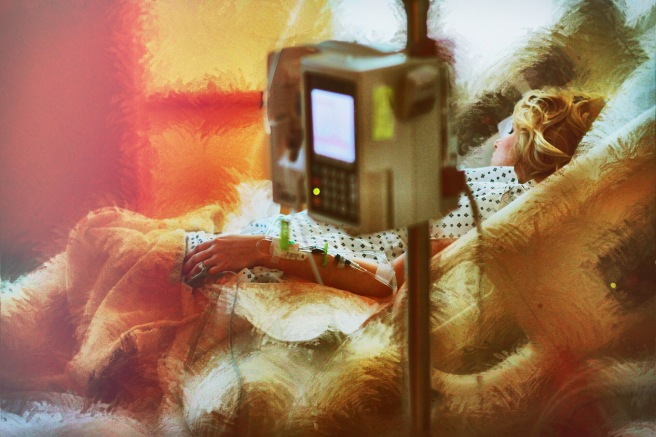
That sound…. that incessant, monotonous, mocking reminder of what I desperately need and don’t have, is getting louder by the minute. I look to my left and to my right in search of something to throw at the useless pump. I put my hands over my ears but I can still hear it. BEEP. BEEP. BEEP. I cover my face with my pillow. BEEP. BEEP. BEEP.
The pain and the noise together form an ice pick that burrows slowly and steadily into my brain. I can’t take much more. I can see the headlines now, “Schoolteacher, Mother of Two Strangles Herself with Hospital Call Button Cord.” Who’ll have the last laugh then? I push the button again.
“How can we— “
“Give me the damn morphine!”
“Ma’am, I told you—“
“I DON’T CARE WHAT YOU TOLD ME. BRING IT NOW. NOT ‘IN A MINUTE,’ NOT ‘WHEN YOU GET A CHANCE,’ NOT ‘AFTER SHIFT CHANGE.’ I WANT IT NOW. RIGHT NOW DAMMIT! IS THAT CLEAR?!”
“I’ll send your nurse in immediately ma’am”
“Thank you so much.”
BEEP. BEEP. BEEP.
Desiree Simons has a B.S. degree in Education and a M.A. degree in Communication. She has been helping people achieve their communication goals since 1986. She has written many nonfiction articles for magazines and newspapers. Go to http://desireesimons.wix.com/dscw to see some of her favorites. Desiree was awarded a month long writer’s residency in 2011 at Vermont Studio Center in Johnson Vermont. She is a member of AWAI (American Writers and Artists Inc.). When she’s not teaching or writing she enjoys the company of her two adult children and her golden retriever Dusty. She hopes to finish her novel one day.
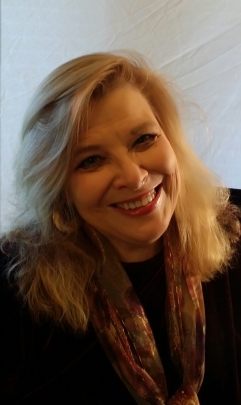
_____________________________
Sometimes I think and cry and sometimes I just think: Some thoughts on the enigma of silence:
//i find company with my pain, with the tears that roll down my cheeks and i name them after my fears and mistakes//
Oftentimes, we require solace. People are strange and complex and having to deal with them regularly is hard – it`s always a comfort to retreat and conceal ourselves in the stillness.
However, it`s not always so quiet, being alone. I, for one, am constantly bombarded with negative and intrusive thoughts that leave me questioning the purpose of existence. They come in battleships and leave me wounded. They pretend to go but come back stronger and I forget the fine line between needing to spend some time alone and wanting to isolate myself from the world.
//me and i do not get on well together – there is confliction and confrontation and a lack of control//
Yes, the world hurts – so very, very much and withdrawing from everything seems like the perfect solution. After all, you cannot be hurt if you are not exposed to anything, right? Or perhaps not. We seem to forget that the problem with self-confinement is that simply, we are left alone. By ourselves. We are our worst enemies, with our tendencies to focus solely on the badness and soon, we forget that all we wanted was to hide away from the world for a short while and start trying to figure out how we can hide from ourselves, perhaps permanently. And the sad truth is, we can`t. We are forced to confront our thoughts, sooner or later, and unfortunately our reactions are often self-destructive. Yet, we remain strangely resilient in becoming unhinged.
//so lost within the noise of this world and its constant battles, one after another – everyone fighting themselves and then each other//
And that`s the thing. Self-destructing seems so attractive. We want to hurt because we know no other way of dealing with things. That`s all the world has taught us: violence doesn`t bring peace, but it`s a way to pass the time – and it`s a way to pass the time that helps us make sense of our dark thoughts and dark minds and aligns the stars for us in these dark skies. In isolation, we dare to find ourselves in the truest and purest ways – we are essentially coerced to deal with ourselves, past the reasoning of personal reflection, and this is inherently damaging. Because personhood is conferred upon us, we cannot really deny it explicitly without being dumped in the mentally ill archetype, which comes with its own problems.
//i don`t want to belong to words that smell of hope and love; they make me flinch and i`d rather spend time with the memories that won`t come back for me//
“Social suicide” enables us to avoid questions that we can`t answer and it feels like a release, like an escape route, when all it is – as we tend to realise too late – is running, but getting stuck at a dead end. We need to realise that it is perfectly okay for some things to be unanswerable for us, even if other people have answers for themselves. It is acceptable to not know, and it`s better to not know with a group of people than be left by yourself, enveloped in guilt and negativity. People are there to talk to, especially when you don`t want to talk. There is a sort of glory and bravery in admitting you need help – life is a process of continuous rapid change, and that`s the one thing that won`t change. Yes, you have relationships that are important to you and people that matter, but admitting weakness is something you should not be ashamed of. If you need time alone, take it. But don`t let it persuade you with its deceitful charm and promise of peace.
As humans, we have a unique gift for self-depreciating and there doesn`t seem like there is a way to stop the cycle. Too many people are hurting for my words to make a difference – the reality is that I am just another quiet whisper in the deafening void. I can`t stop the pain of living – for myself or others – but I can try and ease it by imbuing existence with a smattering of mattering. I can stand for the principles that are important to me and I know that means I`ll have to take the rougher road; there is a dubious journey ahead, with equal amounts of pain and healing involve and I don`t want to travel alone.
And so, I hope you will join me. I`m sure we can have a few rest stops for snacks.
//it`s hard to forgive yourself, but disappearance is a harder and sadder way to live//
Robin Grey would describe themselves as an introvert with a great passion for words. when not reading or writing, they can be found napping, campaigning, getting lost on long walks or passing the time curled up by the fire with a nice daydream and a large slice of their favourite existential crisis.
__________________________________
